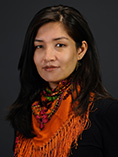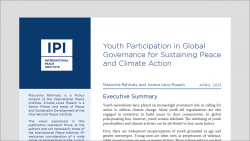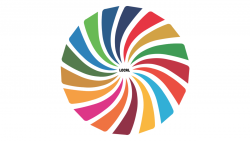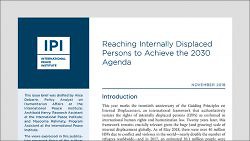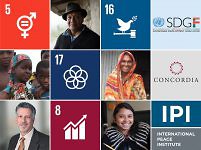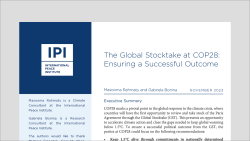
COP28 marks a pivotal point in the global response to the climate crisis, where countries will have the first opportunity to review and take stock of the Paris Agreement through the Global Stocktake (GST). This presents an opportunity to accelerate climate action and close the gaps needed to keep global warming below 1.5°C. To ensure […]
Read more